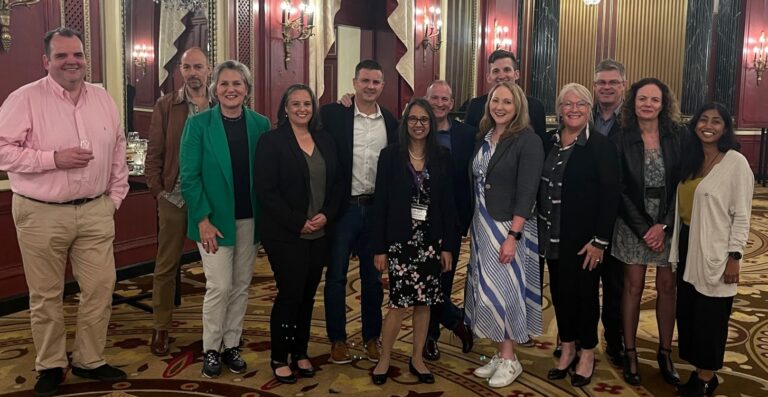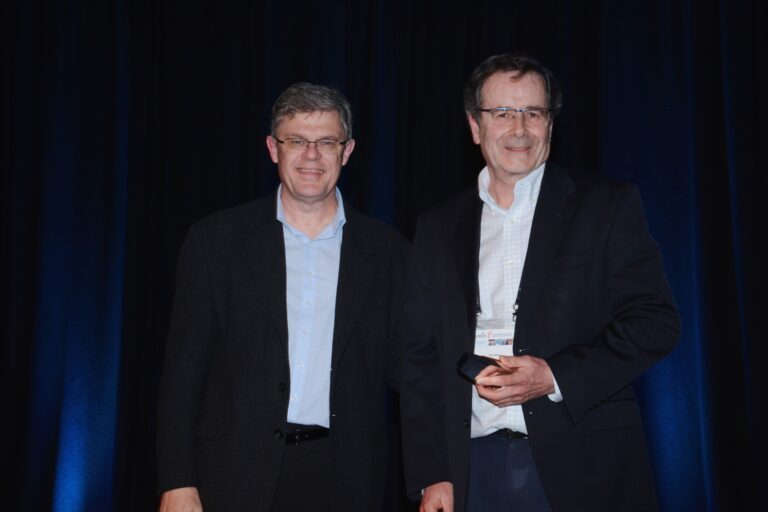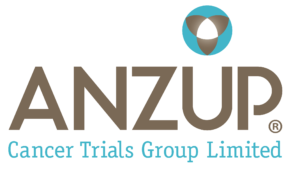
Chairman's Report
ANNUAL
REPORT 2023


Chairman's Report
ANNUAL
REPORT 2023


Chairman's Report
ANNUAL
REPORT 2023


Chairman's Report
ANNUAL
REPORT 2023


Ian Davis
Director and Chair of the ANZUP Board
CHAIRMAN'S REPORT
I am delighted to present to you on behalf of the Board the ANZUP Cancer Trials Group Annual Report for 2022-2023.
The “too long; didn’t read” version of the report can be summarised as follows:
- ANZUP continues to perform well against its strategic goals and priorities
- We develop and perform practice-changing clinical trials aimed to improve outcomes for people affected by genitourinary cancers
- ANZUP manages the financial and other compliance aspects of the organisation carefully and effectively, and we are well placed to continue our work
- We continue to look for new opportunities and ways to support our members
More detail on all of these points can be found throughout this report, and in our regular communications with members, stakeholders, and the wider community throughout the year. I would like to highlight some key points and achievements over the last year.
ANZUP has a vision that is straightforward and simple in concept, but complex in execution. We want to minimise the effects of genitourinary cancers on the community and to improve the survival and the quality of life for the people these cancers impact. We do this by performing high quality clinical trials; ensuring we add value to these trials with other research linked to them; and provide learning, training, and leadership opportunities for our members, particularly for researchers early in their careers. We want to identify areas of inequity and imbalance and to improve access to clinical trials. We are conscious of the need for inclusiveness and diversity at all levels, and continue to strive to improve our performance in those areas. We work closely with a range of stakeholders and partners, to overcome the challenges in resourcing and conducting all of these activities, and to ensure that our work is designed to achieve meaningful outcomes that we can then work to translate into health practice and policy. This in turn requires systems and processes to ensure we are aware of areas of clinical need, new developments in the field, and new or expanded opportunities in which we can work. These are all underpinned by robust, transparent, and reliable systems and processes within the company that ensure our financial viability and compliance with legislative and other requirements.
Our strategy centres on the following strategic goals:
ANZUP’s administrative structure is lean but effective. Our Board comprises some directors elected from the membership, and others appointed on the basis of their experience and expertise. The Board oversees subcommittees covering Finance and Audit, Fundraising and Partnerships, and Governance. Our work is overseen and directed strategically by our Scientific Advisory Committee (SAC), which is constituted to ensure it represents all disciplines relevant to our work. The various disease-specific and other subcommittees of the SAC oversee the development and implementation of ideas into concepts and eventually into full ANZUP studies. This work includes regular Ideas Generation Workshops, where any member can present an idea whatever its level of maturity, for further development and support as needed. Each of our trials is overseen by a high level Trial Management Committee, as well as a trial executive committee that is responsible for day to day management of the trial. Our Consumer Advisory Panel (CAP) comprises people with valuable lived experiences of genitourinary cancers, and is involved at every level of ANZUP’s organisation. The ANZUP staff, led so brilliantly by our CEO Margaret McJannett, provide seamless support for the full range of activities we undertake, and the fact that you might not be aware of them simply underscores how effectively they perform their tasks.

The ENZAMET, ENZARAD, & DASL-HiCaP International Steering Committee at ASCO 2022
The Board has a fiduciary duty to comply with the requirements of the Act and to ensure careful and responsible financial management of the company. You will find the detailed financial reports in this document. Even with all the challenges faced by not-for profit charities, especially during the COVID-19 pandemic, ANZUP has been able to continue its work and growth, and to manage its resources in such a way that we are able to undertake the activities we wish and to reinvest in the organisation and its work. This is exemplified by our various fellowships, grants, and discretionary funding. None of this comes easily, however. Much of our revenue is already earmarked for use in clinical trials; most of the remainder comes from our Annual Scientific Meeting, various fundraising activities such as the Below the Belt Pedalthons, and other activities during the year. The Board oversees careful financial management of our resources including an ethical investment portfolio through Perpetual.

Giving the inaugural Leadership Award to Guy Toner at the ANZUP ASM in Adelaide in July 2022
I am very fortunate to be part of the ANZUP Board. I am surrounded by experienced and dedicated directors who contribute to our success in countless ways. They are extraordinarily generous in volunteering their time and expertise for ANZUP, including many things that are never seen by the broader membership. They provide brilliant support for me and for the wider ANZUP team, and I am grateful to them beyond words. Similarly, I am deeply thankful to be able to work with Marg and her team, who have overcome all the adversities of the pandemic and the day to day slings and arrows that an organisation like ours must manage. Our success has been no accident: it is attributable to the selfless generosity and expertise of all of these, and of all our members and volunteers who contribute so selflessly to help us achieve what we must.
All of us know there remains much work to be done. We do it because we must. It’s enormously gratifying though that we also do it because we enjoy working together in this common cause. This was one of the reasons why it was so exhilarating to be able to meet together in person at last at the Annual Scientific Meeting in July 2022. We had missed each other’s company and the opportunity to bounce ideas off each other more effectively than we could in recent years; the ASM theme of “No longer on mute” was very apt. This year’s meeting theme is “Bouncing back” and again it is one that resonates strongly with us all in so many ways.

The #ANZUP22 Convening Committee
Thank you all for all that you do for ANZUP and the people it serves. It is a joy and privilege to walk this path with you.
I commend to you this 2022-2023 Annual Report of ANZUP Cancer Trials Group.
Ian Davis
Director and Chair of the ANZUP Board
